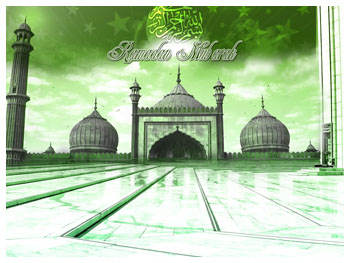Serbian Muslims look to Ramadan for spirit of reconciliation
 Belgrade - After many years of war and hardship, Ramadan in the Balkans is beginning to give Muslims, and other faith communities - a glimmer of a long-absent feeling: unity.
Belgrade - After many years of war and hardship, Ramadan in the Balkans is beginning to give Muslims, and other faith communities - a glimmer of a long-absent feeling: unity.
"During Ramadan we abstain from everything; food, drink, smoking," says Esad Zaimovic, a 45-year-old Belgrade banker.
This year, with Ramadan coming in the summer, fasting from sunrise to sunset is particularly tough to bear.
"It is hard, but it brings a feeling of unity," he says.
Between 1991 and 2001, the Yugoslav wars dismembered the former Communist state, and through ethnic cleansing and genocide, scattered its myriad ethnic and religious groups into ever-smaller countries.
Today, with Serbia still the uneasy heavyweight in the region, the country's 140,000 Muslims - mostly described as Bosniaks - are looking to the expression of their faith as a way to rebuild the ties of their society.
"It is part of our national awakening," Zaimovic says. "It has spread through urban and rural areas. We also have respect, sympathy and even support in (mostly Christian Orthodox) cities like Podgorica and Belgrade, where more and more Christians are embracing the practice of fasting," he says.
Zaimovic confirms how in Serbia's predominantly Muslim areas, such as the Sandzak region straddling the border with Montenegro.
"There life virtually stops during the day and awakens at night," he says.
In the regional capital Novi Pazar, life now fully switches to the Ramadan rhythm for the first time since the end of the former Communist regime there.
But as ever in the Balkans, nothing is simple. Muslim loyalties in Serbia are increasingly divided between the traditional seat of Islam in the Balkans, the Bosnian capital of Sarajevo, Belgrade, or even more local powers.
In addition, resentment against Serbian Muslims in the predominantly Christian country (breakaway Kosovo notwithstanding) has at times in the last few years boiled up.
The Mufti of Belgrade, one of the most senior Islamic leaders in the Balkans, remembers the burning of mosques in Belgrade in 2004.
"The war cost us a lot, it cost us all too much," said Mufti Muhamed Jusufspahic. "Goodwill faltered before, and people allowed themselves to torch the mosques to try and keep the divisions," he said.
The Mufti's mosque in downtown Belgrade still bears the signs of the March 2004 riots.
However, a spirit of reconciliation still pervades in the Ramadan season, even as Serbia smarts from the secession of Muslim-majority Kosovo, which declared its independence in February 2008.
"After the dark 1990s, there finally is hope in a better tomorrow," said Jusufspahic.
On the subject of divided loyalties of Serbian Muslims, Jusufspahic appeals to a higher authority.
"This intra-Muslim conflict came just as the old passions were beginning to settle. Whether the head of the Muslims in (Serbia) is to be in Serbia, or in Sarajevo, who is to know that? Only the wise one," he said. (dpa)